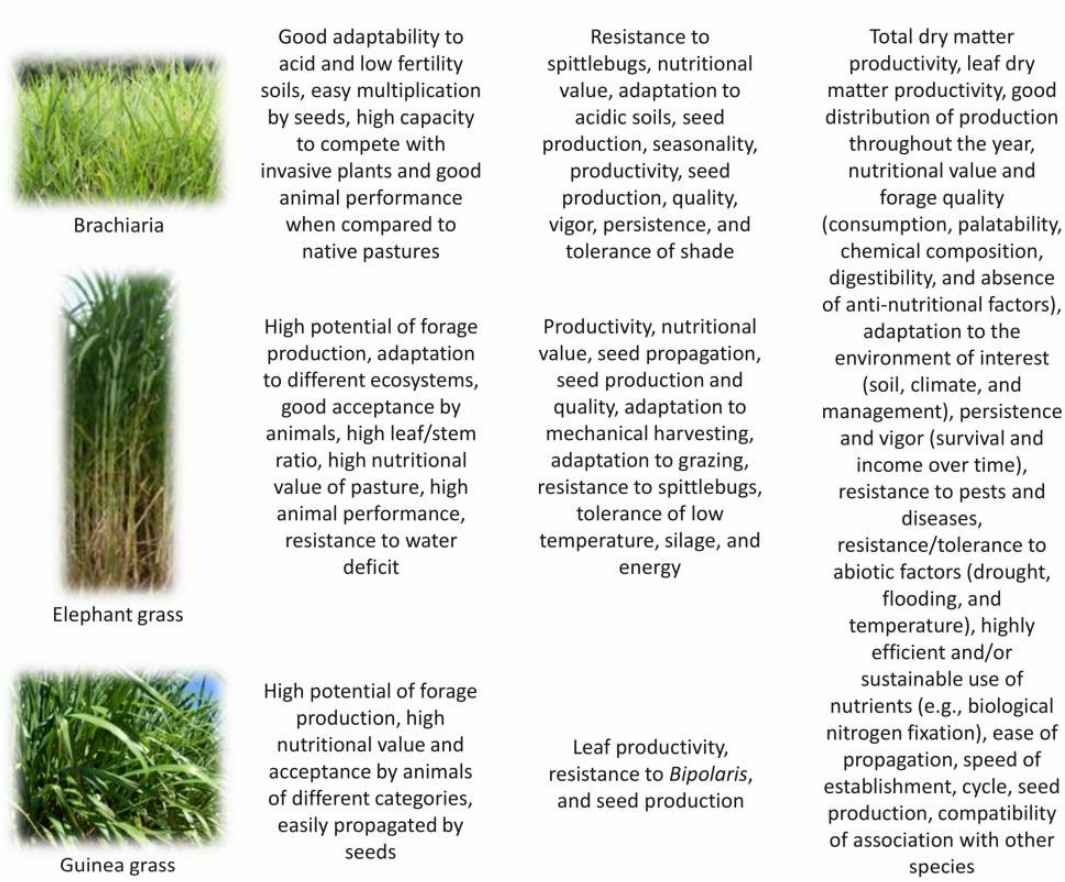Tropical regions are centers of origin and domestication of many of the world's most important food crops, producing more animal products, such as milk and beef. Pastures play an essential role in supporting increased animal production and require better forages for improved sustainability. Traditional tropical forage breeding has successfully produced adaptable and high-yielding varieties over the past few decades. Still, genetic gains from these programs have been low, given the growing global demand for food. To ensure their future impact on livestock production, forage breeding programs should utilize genotyping, phenotyping, and environmental typing strategies to increase genetic gain. Genomic selection and genome-wide association studies play a major role in this process, with the advantages of higher selection accuracy, shorter cycle times, and increased genetic gain through the number of individuals that can be evaluated. Preliminary results of implementing genomic selection in tropical forage grasses are promising, with significant improvements compared to phenotypic selection alone.
 Fig.1. Characteristics of brachiaria, Guinea grass, and elephant grass and breeding goals to improve their use as tropical forage grasses. (Simeão RM et al., 2021)
Fig.1. Characteristics of brachiaria, Guinea grass, and elephant grass and breeding goals to improve their use as tropical forage grasses. (Simeão RM et al., 2021)
Breeding programs in tropical forages are limited by different ploidy levels and reproductive patterns, evaluation of perennials under different cuts, allocation of effort among different species, and laborious and expensive trait evaluation. To address our client’s concerns in this area, Lifeasible offers specialized genomic selection solutions for tropical forage grasses. Our goal is to help you identify and develop improved tropical forage genotypes that contribute to increased animal productivity and reduced environmental impact.
In addition, we offer advanced molecular genetic markers for tropical forage selection and genetic improvement. We infer the quality of tropical forage genetic selection by validating correlations and regressions between predicted genetic values and phenotypes in the population and the accuracy of the predictions. Our research focuses on the development of new capabilities, including:
Lifeasible has a genotyping platform for association studies and gene selection in tropical forage grasses. We design breeding programs for tropical forages and propose breeding programs that optimally utilize genetic selection to rapidly select new varieties to meet future food and feed needs. For more information or to discuss this in detail, please contact us.
Reference